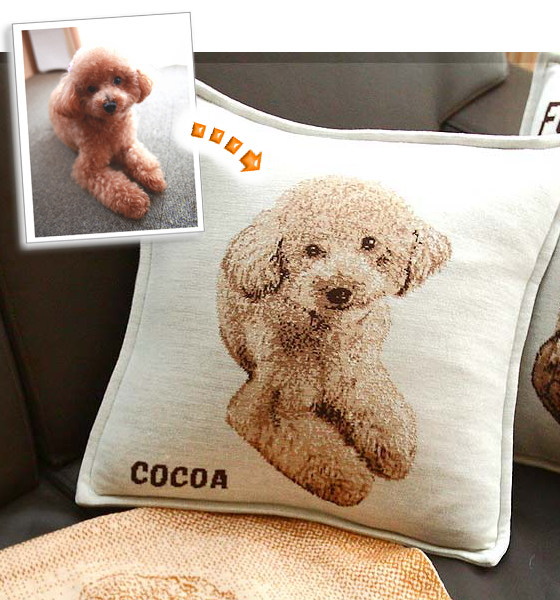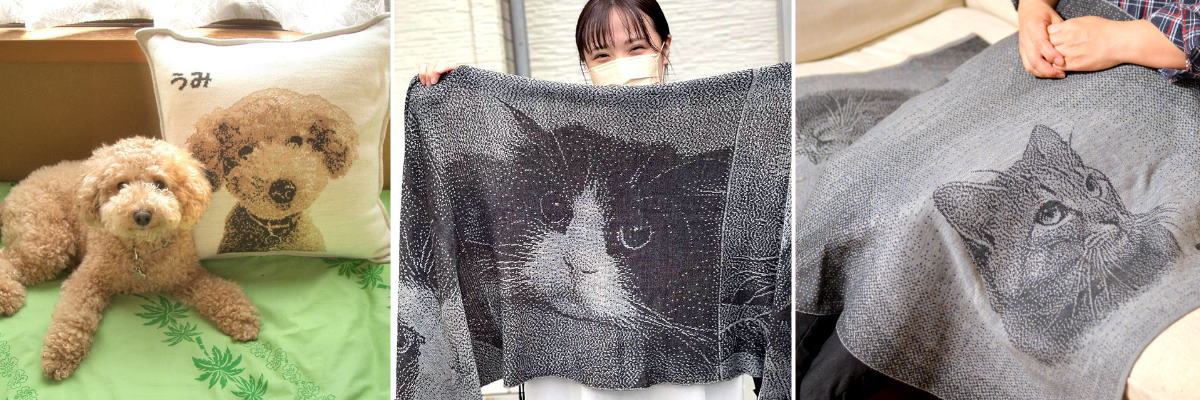When You’re the Only One Still Grieving: Coping with Pet Loss in a Family That’s Moved On
One of the most common messages we receive is this:
Am I not even allowed to cry anymore?”
Losing a beloved pet is incredibly painful, and when your grief isn’t fully understood or accepted by your family, that pain can linger even longer.
Many of our customers have shared that their families reacted differently to the loss of a pet, and that the emotional gap between them became a source of distress.
In this article, I’d like to explore how to deal with family members who may not understand your grief, by sharing some of my own experiences and how I handled them.
My Experience: Different Views on Grieving a Pet
When our dog Mook passed away, my father said something I’ll never forget:
“There’s no point in crying. It won’t bring him back. You need to move on with your life.”
To me and my siblings, those words were deeply hurtful.
We had loved Mook so much—he had been a part of our lives and family—and now, even crying for him felt like something we weren’t allowed to do.
We were shocked and even angry at our father’s cold response.
How I Coped
I couldn’t accept what my father said. It hurt. But I also didn’t feel like arguing with him.
I knew deep down that Mook wouldn’t have wanted us to fight.
I was overwhelmed with sadness. I couldn’t find the words to speak, so instead, I avoided him.
I stayed out of the same room. I didn’t respond when he spoke.
Sometimes I’d hear him saying something in the distance and think:
“There he goes again. Why won’t he just leave me alone?”
Looking back, I realize he was probably worried about me.
But at the time, I wasn’t in the emotional state to accept his concern.
Time Helped Bridge the Gap
Now, with some distance and time, I can see things differently.
Maybe my father couldn’t face the pain of losing Mook.
Or maybe he truly believed that moving forward was the only way to cope.
We never reached a mutual understanding, but over time, the tension faded.
We don’t talk about Mook in front of him anymore, and he no longer says anything when we visit Mook’s grave or create memorial items in his memory.
He even accepts the work I do today—designing custom pet memorials for others who’ve lost their beloved animals.
I’ve come to believe that he never disliked our dog.
He was just grieving in his own way—perhaps in silence, or with a different sense of what it means to let go.
Customer Stories: When a Partner or Parent Doesn’t Understand Your Grief
“My husband just doesn’t seem to understand.”
— A story from a woman in her 40s
My husband and I were never able to have children, so our dog truly became our child.
When we lost him, the grief was overwhelming—and yet I felt like I had no one to share it with.
My husband did accompany me to the cremation, but after that, he seemed disinterested whenever I tried to talk about our dog.
If I brought up memories, he would look at his phone or turn on the TV to change the subject.
Every day was emotionally painful.
“Not being understood was the hardest part.”
— A story from a man in his 40s
When my cat passed away, I had prepared myself mentally for the loss. I knew the day would come eventually.
But the hardest part wasn’t the loss itself—it was the lack of understanding from my mother.
She said things like:
“Stop moping around.”
“Crying won’t bring the cat back.”
“So what exactly do you want to do?”
Her words felt incredibly cold and unsupportive. I couldn’t understand why she would say such things, and it left me feeling nothing but distrust toward her.
From that day on, I stopped talking about my cat in front of her.
I only kept photos of my cat in my room, never in shared spaces.
Now that we no longer live together, I can speak to her casually when I visit—but whenever I think back to that time, I still feel a quiet anger, or maybe it’s just a kind of emotional numbness.
How to Cope When Your Family Doesn’t Understand Your Grief
When family members react differently to the death of a pet, it can be especially painful—especially if your own feelings aren’t acknowledged or understood.
In these situations, we often hear about 3 common ways people try to cope.
1. Creating Emotional and Physical Distance
While it may feel sad, putting some distance between yourself and unsupportive family members can sometimes be the best choice.
Many people choose to keep their pet’s photos, ashes, and other keepsakes in their own private space—like their bedroom—where they can grieve freely and safely.
Ashes, in particular, can become a source of conflict in families. For that reason, some people prefer to keep them somewhere discreet, away from common areas.
Several of our customers have told us that they keep their custom memorial cushions in their rooms, out of sight from others, simply to avoid emotional friction.
2. Giving Memorial Gifts to Family Members
Interestingly, we sometimes receive second or third orders from customers who initially purchased a cushion or blanket for themselves.
When we ask why they’re ordering again, many say that a family member—perhaps a father or mother who had been distant since the pet’s passing—saw the cushion and said, “I’d like one too.”
Sometimes what feels like a lack of understanding is actually a form of hidden grief.
They may be hurting just as much, but expressing it differently.
Giving a pet memorial item as a gift can become a gentle way to reconnect—and a reminder that, deep down, you’re not grieving alone.
Related Articles: Personal Experience: Differences in Family Members’ Feelings About the Death of a Cat
3. Talk to Someone Who Understands Your Grief
No matter the situation, it’s incredibly painful when those you lived with—your own family—can’t understand your feelings after the loss of a pet.
Trying to hold everything in often makes things worse.
Instead of keeping your emotions bottled up, try reaching out to someone who you believe will truly understand.
Sometimes, we at our shop take on that role.
When customers place an order, they often share their stories of pet loss with us.
Many have told us that just talking about their grief—even briefly—helped them feel a little lighter inside.
You don’t have to go through this alone.

Related article: I want someone to listen to the loneliness I feel after losing my pet
The Hidden Meaning Behind Different Reactions to a Pet’s Death
From the stories our customers share, it’s clear that parents or other family members didn’t necessarily dislike the dog or cat that passed away.
In many cases, they simply believe that “moving on quickly” is the healthiest way to cope—and that belief may unintentionally cause misunderstandings and emotional distance.
We’ve seen this especially with families who were initially unsupportive, yet later placed additional orders after receiving their first memorial cushion.
This makes us think that the struggle isn’t a lack of love—but perhaps a difficulty in expressing grief openly.
We often say that allowing yourself to cry is an important part of healing.
(We talk more about this in [this article].)
Related Articles
People who viewed this page also frequently read the following articles:
・How to sort through your pet’s belongings: what to keep and what to dispose of
This article discusses the different ways families think about pet belongings.
Personal experience: Differences in family members’ feelings about the death of a cat
I want to overcome the loss of my pet/My method for overcoming the loss of my pet


